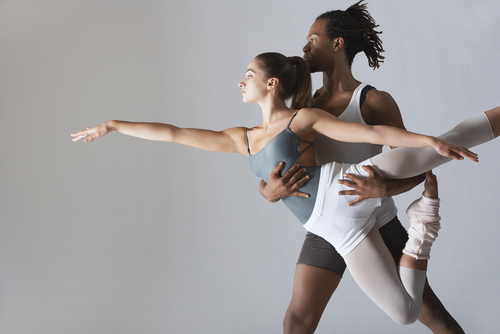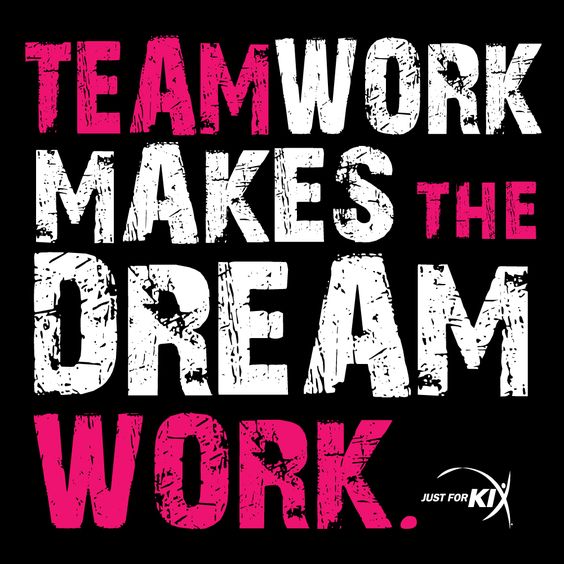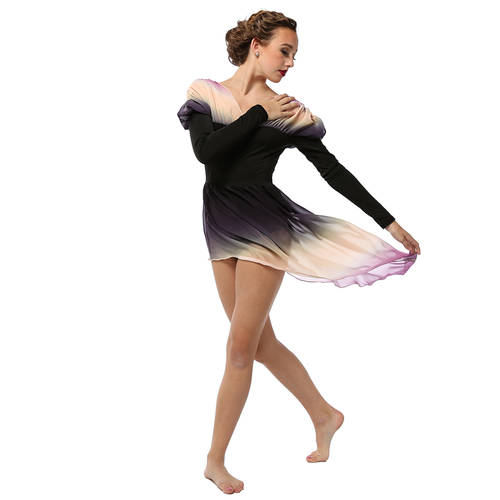Dance Talk
Our dance season never ends. Learn dance tips from the best.
9 Common Mistakes Your Partner Wishes You Knew


In dance, a successful partnership takes more than skill (and matching dance costumes). It takes trust and hard work. It also takes a personal and emotional investment -- just like in any other kind of partnership. In addition, it demands each dancer to play their unique role to the best of their ability and to avoid these common mistakes in the process:
#1: Not breathing.
If you're not used to dancing with a partner, then being so close to another human being can be a little unsettling. As a result, you might get nervous and forget to breathe -- which can impact your endurance and ability to perform. It can also prevent you and your partner from getting and staying in synch because you're holding too much tension in your body. But when you breathe while you dance, you can feel confident and more comfortable.
#2: Lack of trust.
Whether it's a lack of trust you have in your partner or yourself, either way it's going to affect your performance. It certainly takes time to build trust with someone you don't know well or haven't being dancing with for very long. But you're going to reach a point where you simply have to let go and trust that person. So cast out fear and be sure to keep communicating throughout every practice. The more you communicate in a positive way, the faster you'll be able to build trust and confidence with each other.
That said, keep in mind that not every partnering is going to be the right fit. Sometimes, for whatever reason, partners don't mesh well and need to be re-assigned. It may simply be due to a lack of chemistry or a mismatched skill set. So if this happens, don't take it too personally.
#3: Poor communication.
Achieving excellence in dance requires skill, hard work -- and lots of communication. Along the way, a lot of mistakes will be made. When this happens, you need to focus on the step, not on berating your partner. Don't call them names or get resentful. They're working as hard as they can and some steps and moves simply take more time than others. While it's perfectly ok to disagree -- which will happen in any partnership -- it's also important to always be respectful when sharing your opinion.
#4: Unequal partnership.
You're partners and want to help each other. But sometimes, your assistance can be too much and it can impact the overall performance. If, for instance, you're putting too much energy into a step, then it actually makes things harder for your partner. The movement and fluidity of the dance will be thrown off with too much movement.
#5: Not setting goals.
If you and your partner want to continue progressing, then you need to set goals in order to prevent becoming stagnant. If you're competing together, setting and achieving goals can help keep you motivated and performing at peak levels. But it's also important that you work together and collaborate to set goals that you both want to achieve together. If one partner wants to improve and get to another level of dancing, while the other is more interested in competing at your current level in competition, the partnership will eventually grow frustrating.
#6: Not focusing on the music and the mood.
When you first start dancing together, it's hard to share a rhythm. However, the music will serve as a link for the two of you. To enhance the mood, you and your partner should be talking about and developing a back story for the dance. Who are the characters? What are they expressing? That way, you can approach the performance with the same mood in mind. This will help you not only connect better with each other, but also the audience, as well.
#7: Not treating each other well.
Overconfidence. A lack of trust. Not enough communication. These can all get in the way of the harmonic exchange between dance partners -- impacting the quality of your rehearsals and the level of your performance. That's why it's so important for each dancer to give their complete focus and energy to one another, exerting the same level of effort in order to achieve a symbiotic performance.
It's also important to:
- Treat each other well, with respect, and remain engaged throughout every practice and performance.
- Appreciate and praise each other's hard work and progress.
- Offer encouragement when your partner is struggling.
- Stay humble and realize you can both learn a lot from each other.
#8: Being inflexible.
If you want to learn, grow, individually and as partners, then it's important to be flexible. Stubbornness can often get in the way of this. But when you're obstinate and inflexible, it also means you won't take your partner's comments and opinions into account, which can lead to a toxic relationship. Remember, you're both on the same team and you need to be on the same page. That means being willing to change and to accommodate one another.
#9: Not carefully considering dance costumes.

Beyond focusing on each, it's also important to think about what dance costumes you'll be wearing and how you'll look. You want to ensure both you and your partner feel comfortable and confident in whatever you do choose. If it doesn't feel comfortable on a personal level for both of you, you're not going to look like champions on the dance floor.
Ready to shop discount dance costumes? At Just for Kix, we carry everything you and your partner need to look and feel your best -- in practice and on the stage.

Follow Us
Follow Us online, join our conversations, engage with our teams around the world!